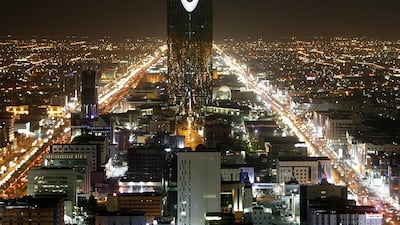Non-oil exports from Saudi Arabia to the US increased by 3.5 per cent last year, despite the disruption caused by Covid-19, according to the US-Saudi Business Council.
Total trade between the US and Saudi Arabia stood at 75.6 billion Saudi riyals ($20.2bn) last year, with the bulk being US imports into the kingdom. The US is the second-biggest source of goods imported into Saudi Arabia.
However, goods worth 33.7bn riyals were exported from Saudi Arabia to the US, 84 per cent of which was crude oil exports. Non-oil exports grew to 5.3 billion riyals last year, with aluminium, organic chemicals and fertilisers among the main categories of exports.
Precious or semi-precious metals and textile exports to the US also grew last year.
"This development reflects the larger economic transformation underway in Saudi Arabia to grow the non-oil economy through investments in manufacturing, downstream petrochemicals, and other emerging sectors through the Public Investment Fund and programmes like the National Industrial Development & Logistics Programme," the USSBC said.
Saudi Arabia is attempting to diversify its economy away from oil under the Vision 2030 programme announced in 2016. In a television interview last month to mark the fifth year since the strategy was first outlined, Saudi Crown Prince Mohammed Bin Salman said the kingdom's non-oil revenue had increased more than 200 per cent.
"Oil is still the main source of income for the state," Prince Mohammed said. "My intention is to make sure that the country is secure, safe and has a better future to look forward to."
The crown prince reiterated plans for state oil company Saudi Aramco to spend Dh5 trillion in the private sector by 2030. He also said a further 1 per cent stake in Aramco could be sold to a major foreign energy company within two years.
“Saudi Arabia’s non-oil exports decreased by 12 per cent globally in 2020 yet its non-oil exports to the US increased by 3.5 per cent despite the pandemic," the USSBC's director of economic research, Albara’a Alwazir, said.
"This reflects a resilient increase in demand from US importers of Saudi goods that go beyond petrochemical derivatives and metals," he said.


